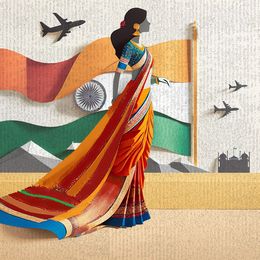Every year, the world celebrates March 8 as International Women’s Day, honouring the resilience, courage, sacrifice and strength of countless women who, despite societal biases, have persevered and triumphed. The true essence of women’s empowerment does not reside in an annual commemoration but in the everyday struggles of women, often unseen and unsung as they strive for dignity, security and opportunity. Empowerment is not an act of benevolence but a fundamental acknowledgement that men and women possess equal rights to pursue their aspirations and contribute to the country’s progress.
Over the years, successive governments have introduced schemes aimed at empowering women through education, financial inclusion and skill development. These schemes have, undoubtedly, achieved some progress, but true empowerment requires more then just policy framework and financial support. The real requirement is to dismantle societal biases.
Women face invisible barriers, not just in their public or professional spaces, but within the supposed safety of their homes and social circles. These biases, often unconscious and unintentional, shape the lives of women from a young age, when parents prioritise domestic roles for their daughters over nurturing their professional ambitions. Girls are gifted dolls, tea sets and doll houses, while boys get cars, doctor kits or action figures. With age these biases deepen. In many households, while parents diligently encourage their children to excel academically, the focus often takes a sharp turn upon the completion of education. For daughter, the emphasis shifts from finding an appropriate career to finding a suitable groom. Academic success for girls is often treated as a qualification for finding a successful husband.
Even in professional spaces, these biases continue to stifle the growth of women. Women are often overlooked for challenging roles under the guise of protection, often rooted in a misplaced sense of concern for their wellbeing. Though well-intentioned, these societal biases deny a woman the opportunity to ascend to leadership roles.
During the initial days of my legal carrier, freshly graduated from Oxford, I encountered one of the most profound reality checks while working in a trial court of Delhi. On that day I was to argue a bail petition and was setting up my case papers on the podium, when the court reader remarked in Haryanvi, “Madam, move aside.” However, after I concluded my argument and secured an order in my favour, the same court reader, now seemingly impressed, said, “Sir, you argued very well.” This unconscious shift from ‘madam’ to ‘sir’, was both telling and unsettling. My competence and success temporarily elevated me to a status traditionally reserved for men. As if, ‘madam’ could not possibly command the same respect as ‘sir’. It was a small incident, but it laid bare the deep-rooted societal biases that continue to shape perceptions of gender and competence.
The Narendra Modi government understands that true empowerment extends beyond education and financial support. Initiatives like Namo Drone Didi and Lakhpati Didi are not just economic incentives, but they drive a powerful social message. Women can excel in highly technical fields such as piloting and can become beacons of financial independence within their communities. The discourse has consciously been shifted from ‘women empowerment’ to ‘women-led development’, recognising that women are not merely passive participants in the nation’s progress but are pivotal leaders shaping its future.
As Bharat strides towards 2047, it is time to shred the biases and embrace the undeniable truth that our women are strong, passionate and unwavering in their struggle, hustle and pursuit of achieving the common goal of a Viksit Bharat.
Bansuri Swaraj is the Lok Sabha member from New Delhi.


